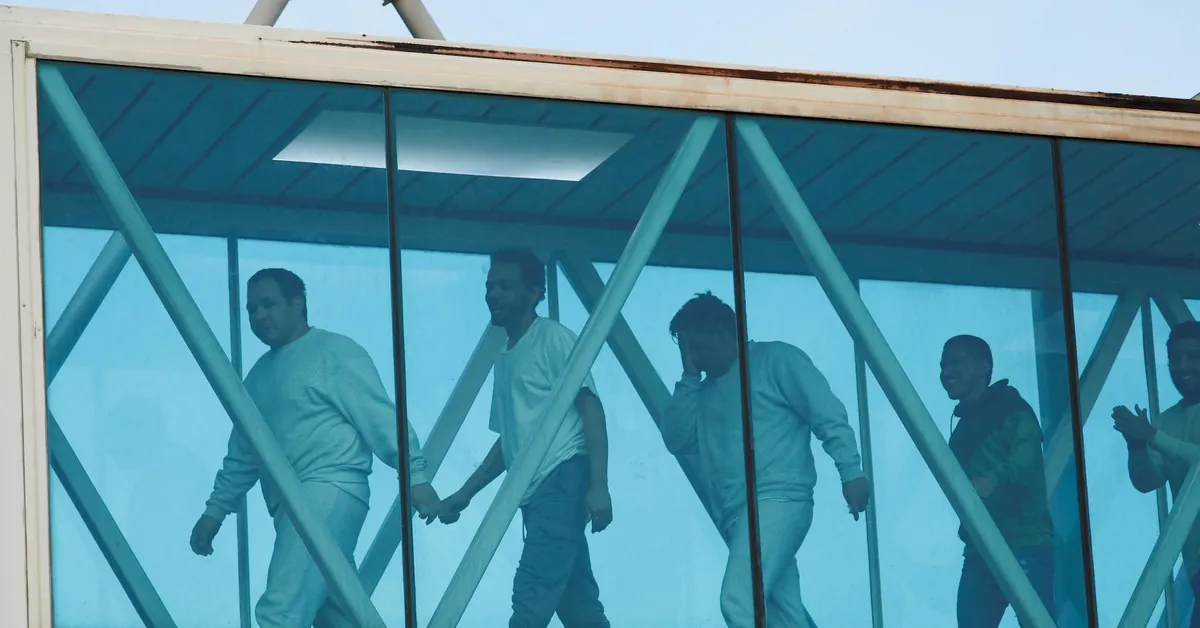
On June 23, 2023, the U.S. Supreme Court granted a significant victory to President Donald Trump’s administration by enabling the resumption of deportations of migrants to countries other than their own. This controversial ruling permits the government to proceed without providing migrants the opportunity to demonstrate the potential harms they may face, aligning with Trump's aggressive strategy for mass deportations.
The court's decision came in response to a request from the Trump administration to lift a judicial order that mandated migrants slated for deportation to so-called third countries be given a meaningful chance to present their fears of torture or violence at their new destinations. This emergency request, which the court approved, sparked strong dissent from the three liberal justices, who criticized the ruling as a significant overreach of judicial power.
U.S. District Judge Brian Murphy had originally issued the order on April 18, emphasizing the need for due process. The Supreme Court's brief, unsigned order provided no rationale for its decision, a common practice when addressing emergency requests. With a conservative majority of 6-3, the ruling reflects the ongoing ideological divide within the court.
Justice Sonia Sotomayor, along with her fellow liberal justices, vehemently opposed the decision, labeling it a "gross abuse of the court's power." She expressed deep concern that the court appeared to prioritize the government's interests over the potential suffering of thousands of migrants facing violence in unstable regions. Sotomayor's dissent highlighted the constitutional obligations under due process, which dictate that individuals must be given notice and an opportunity to contest adverse actions against them.
Judge Murphy had previously determined that the administration's approach to executing third-country removals violated the constitutional protections afforded to migrants. In particular, he noted that the administration's policy lacked adequate notice and opportunities for migrants to present their fear-based claims before deportation.
This ruling follows a broader legal challenge initiated by immigrant rights groups, who filed a class-action lawsuit against the Trump administration's policy of expedited deportations to third countries. The lawsuit emerged after the Department of Homeland Security (DHS) intensified its efforts to deport migrants to politically unstable nations, including South Sudan, which the U.S. State Department has flagged as a location where travel is fraught with risks such as crime, kidnapping, and armed conflict.
Trina Realmuto, the executive director of the National Immigration Litigation Alliance, which represents the plaintiffs, condemned the Supreme Court's ruling. She described the implications as “horrifying,” arguing that it strips away essential due process protections that safeguard migrants from torture and death during deportation proceedings.
The Trump administration defended its third-country policy, asserting that it complies with due process and is vital for removing migrants who have committed serious crimes. The administration claimed that many migrants facing deportation are from countries that refuse to accept them back. In a statement following the Supreme Court’s decision, White House spokesperson Abigail Jackson reiterated the administration's commitment to enforcing immigration laws, stating that the ruling reaffirms the president's authority to remove criminal illegal aliens from the United States.
This legal battle is part of a larger array of challenges facing Trump’s immigration policies since he took office in January. The Supreme Court previously allowed the administration to terminate humanitarian programs that provided temporary residency and work permits to hundreds of thousands of migrants. However, the Court also criticized the administration's treatment of certain migrants as inadequate under constitutional due process standards.
Sotomayor underscored that the administration's actions, including sending migrants to South Sudan and the U.S. naval base at Guantanamo Bay, blatantly disregarded two court orders issued by Judge Murphy. She emphasized that the court's decision to overlook noncompliance undermines the rule of law and the integrity of judicial authority.
As the legal landscape continues to evolve, the implications of this ruling may reverberate through ongoing debates over immigration policy and human rights protections for migrants in the United States.